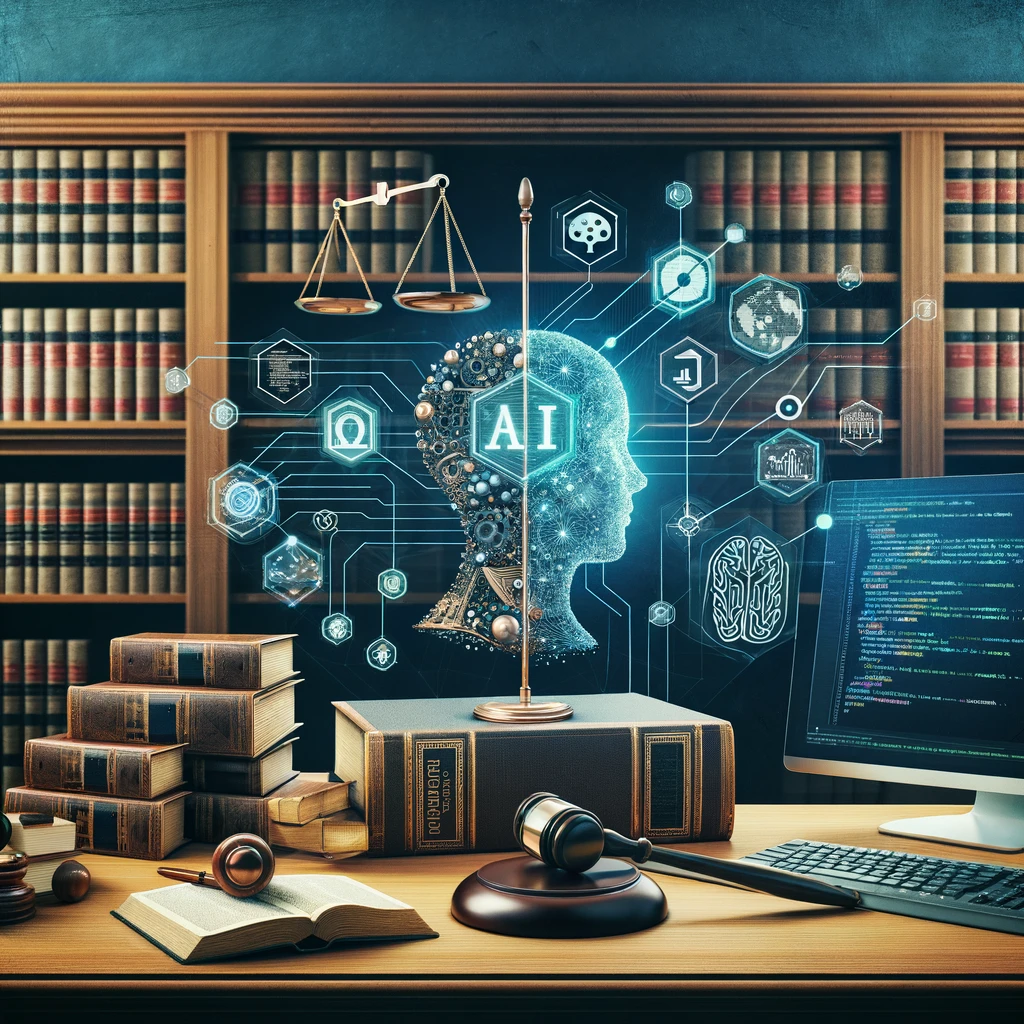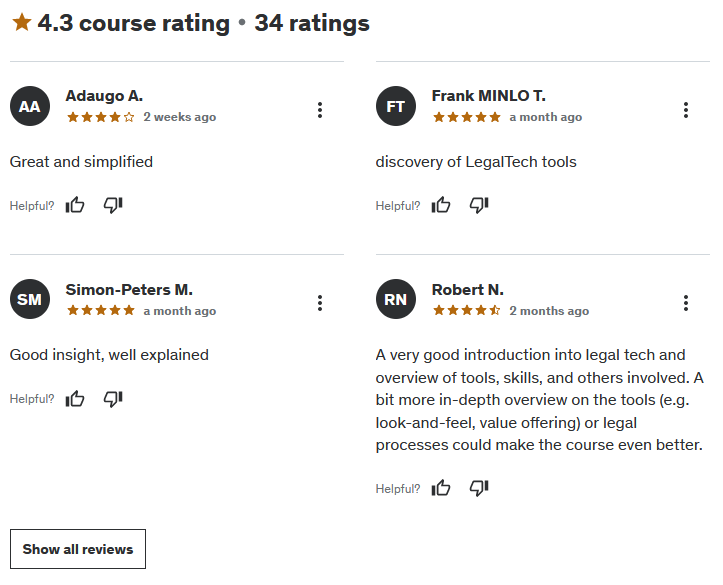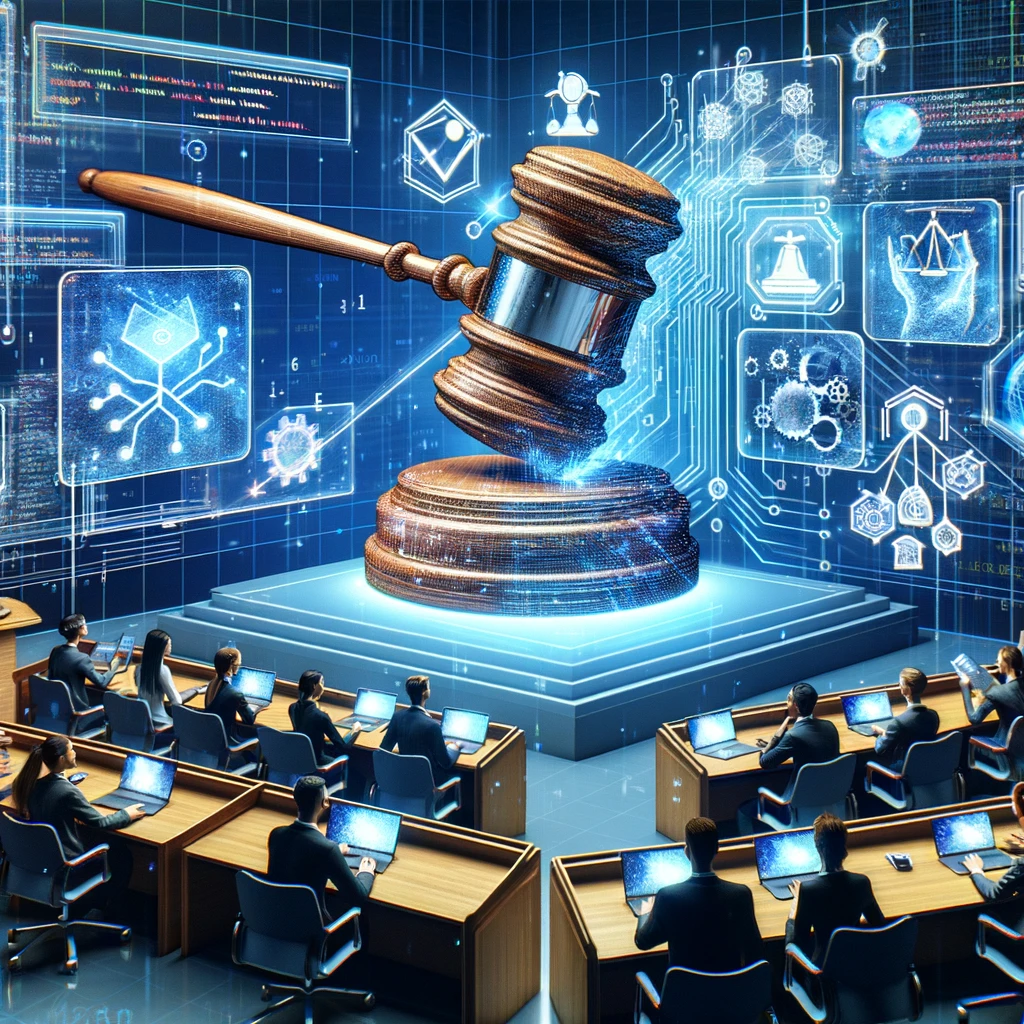If you’re looking to dive headfirst into the rapidly evolving world of legal technology and artificial intelligence, then you’re in for a treat with Udemy’s course “Legal Tech and AI for Lawyers, Law Students, and Professionals“. Here’s my take on this comprehensive journey through the digital transformation of the legal industry.
Right off the bat, this course promises to be a game-changer for anyone interested in how digitization is reshaping law. It’s not just about getting a grip on the latest software; it’s a deep dive into how AI, blockchain, and data science are revolutionizing legal workflows, decision-making, and even the job market for legal professionals.
Instructor Reputation: A Closer Look at Diwakar Thakore
When enrolling in a course, especially one that delves into the intricate relationship between technology and law, the instructor’s background, expertise, and teaching methodology are pivotal. Diwakar Thakore, the spearhead of “Legal Tech and AI for Lawyers, Law Students, and Professionals,” stands out not just for his commendable instructor rating of 4.2 but more so for his rich tapestry of experiences and contributions to the tech and legal tech communities.

Thakore’s journey is marked by a series of pioneering ventures and mentorships, painting the picture of a seasoned founder deeply immersed in the tech world’s frontiers. His work spans a broad spectrum, including mobile search technology, natural language processing, AI for social impact, and blockchain technology, among others. This diversity in expertise is crucial for a course that aims to cover the vast domain of legal tech and AI. It signifies that the instructor is not merely academically versed in these subjects but brings a wealth of practical insights and real-world applications to the table.
Moreover, Thakore’s role as a mentor and adviser to startups and growth companies adds another layer of depth to his profile. His involvement with high-profile platforms and initiatives like CIIE at IIM Ahmedabad and T-Hub’s Global Bridge: Canada-India Program showcases his commitment to fostering innovation and supporting the next generation of entrepreneurs and legal tech professionals. This mentorship experience, combined with his hands-on approach to teaching, suggests that students can expect not just to learn about legal tech but to understand how to navigate and succeed in this evolving field.
Thakore’s teaching philosophy appears to be deeply rooted in practicality and relevance. Reviews and testimonials from past students frequently highlight his straightforward and substance-focused delivery. This method is particularly effective in a field as dynamic and complex as legal technology, where theoretical knowledge must be complemented by practical skills and an understanding of real-world applications.
The instructor’s commitment to igniting innovation and legalpreneurship is particularly notable. The extra content on skills for the new age legal professional, covering areas like design thinking and legal project management, reflects Thakore’s broader vision for his students: not just to learn but to innovate, disrupt, and lead in the legal tech space.
Course Structure: Delving Deep into the Curriculum
The structure of “Legal Tech and AI for Lawyers, Law Students, and Professionals” is a testament to the comprehensive and forward-thinking approach of its creators. The course is designed not merely as a series of lectures but as a journey through the current state and future possibilities of legal technology and artificial intelligence. It is segmented in a manner that caters to a wide audience – from seasoned lawyers and legal professionals looking to update their tech skills, to law students eager to gain a competitive edge, and even non-lawyers fascinated by the intersection of law and technology.

The course kicks off with foundational topics, such as the latest eDiscovery, legal research and analytics, and contract management software. This ensures that all students, regardless of their prior experience with legal tech, start on the same page. From there, it progressively delves into more advanced topics, such as automation in legal workflows, artificial intelligence, data science, blockchain technology, and the use of virtual and augmented reality in legal settings. This gradual escalation allows students to build their knowledge base systematically, ensuring that each new concept is understood in the context of its application to the legal field.
A standout feature of the course structure is its emphasis on the practical application of technology in legal work. It goes beyond theoretical discussions to include hands-on exercises, case studies, and real-world examples. This approach is invaluable for students, as it bridges the gap between understanding legal tech concepts and applying them in professional settings.
Furthermore, the course does not shy away from addressing the challenges and ethical considerations inherent in the use of technology in law. Topics such as the potential for bias in AI, the implications of digital identities, and the ethical use of virtual courts and robot judges are crucial for preparing students to navigate the complex moral landscape of legal tech.
The inclusion of extra content focusing on skills for the new age legal professional is particularly noteworthy. This section, covering design thinking, legal project management, legal hackathons, and startups, is designed to equip students with the tools and mindset needed to innovate and lead in the legal tech space. It reflects a holistic view of legal education, one that acknowledges the changing nature of the legal profession and the need for lawyers and legal professionals to be versatile, innovative, and tech-savvy.
In summary, the course structure is both ambitious and comprehensive. It is crafted to not just educate but to inspire and empower a new generation of legal professionals who are as comfortable with technology as they are with the law. Through a blend of foundational knowledge, practical skills, and forward-looking insights, the course promises to be a pivotal step for anyone looking to make their mark in the legal tech landscape.
Content Quality: A Deep Dive into the Heart of Legal Tech
The content of “Legal Tech and AI for Lawyers, Law Students, and Professionals” is nothing short of comprehensive. It spans a wide array of topics crucial for understanding and navigating the intersection of technology and law. From the outset, the course is structured to build a strong foundation in legal tech, gradually advancing to more complex subjects such as AI applications in law, blockchain technology, and the future of digital identities and smart contracts.

Each module is crafted with a clear focus on relevance and applicability. For instance, the segments on automating legal workflows and document processing are particularly engaging, offering students practical knowledge on streamlining tasks that are traditionally time-consuming. The course doesn’t just list out the tools available; it delves into how these tools can be effectively integrated into daily legal practices to enhance efficiency and accuracy.
The exploration of artificial intelligence and machine learning technologies is another highlight. Here, the content strikes an impressive balance between technical depth and accessibility. It demystifies these complex technologies, making them understandable for non-tech savvy learners while still providing the depth required by more technologically advanced students. This is crucial in a field where AI’s implications are vast and varied, from automating routine tasks to aiding in predictive legal analytics.
Moreover, the course’s foray into data science and its application in legal decision-making opens up new vistas for legal professionals. It showcases how leveraging data can lead to more informed decisions, highlighting the transformative potential of data science in the legal field. This segment not only educates but also inspires students to think about how they can apply these insights in their own legal practices.
The quality of content extends to the discussions on ethical considerations and the future of law. Addressing potential biases in AI, the ethical use of technology in legal practice, and the futuristic concept of virtual courts and robot judges, the course ensures that students are not just technologically proficient but also ethically aware and prepared for future challenges.
Each module is enriched with case studies, real-world examples, and extra lectures that broaden the learning experience. The course’s practical approach, coupled with its forward-looking perspective, makes the content not just informative but transformative for its audience.
Overall Course Rating: 9/10
After thoroughly engaging with the course material, considering the depth of content, the instructor’s expertise, and the practical applicability of the knowledge imparted, I would rate “Legal Tech and AI for Lawyers, Law Students, and Professionals” a solid 9 out of 10.

This rating reflects the course’s comprehensive coverage of legal tech and AI, its relevance to current and future legal practices, and its potential to significantly impact students’ professional capabilities. The course excels in making complex technological concepts accessible to a broad audience, ensuring that all students, regardless of their prior tech knowledge, can benefit.
However, there’s a slight deduction from a perfect score, acknowledging that there’s always room for enhancement, particularly in offering more hands-on exercises or interactive elements that could further solidify the learning experience. Some students might also appreciate even deeper dives into specific technologies or tools, with step-by-step tutorials or more case studies from legal practices that have successfully integrated these technologies.
In conclusion, this stands out as a pioneering course in the legal tech education space. It’s an invaluable resource for anyone looking to navigate the complexities of technology in law, from seasoned legal professionals seeking to update their tech skills to law students preparing for a future in a digitally transformed legal landscape. This course not only educates but empowers its students to be at the forefront of the legal tech revolution, making it a must-take for those aspiring to lead in the new age of legal practice.



